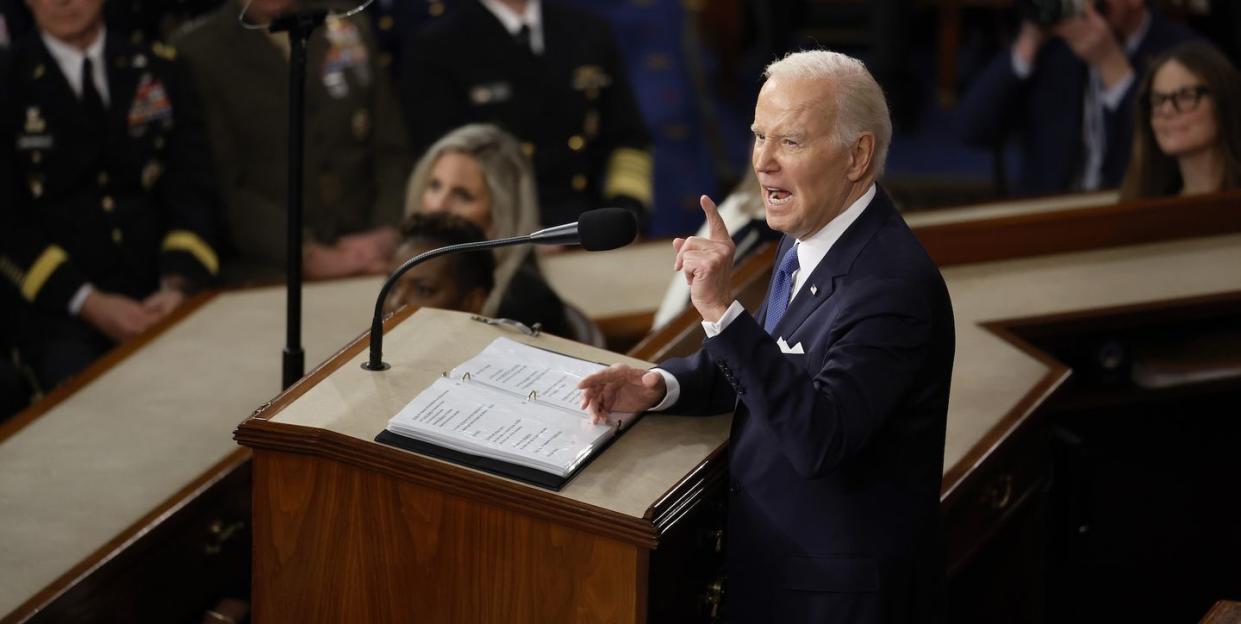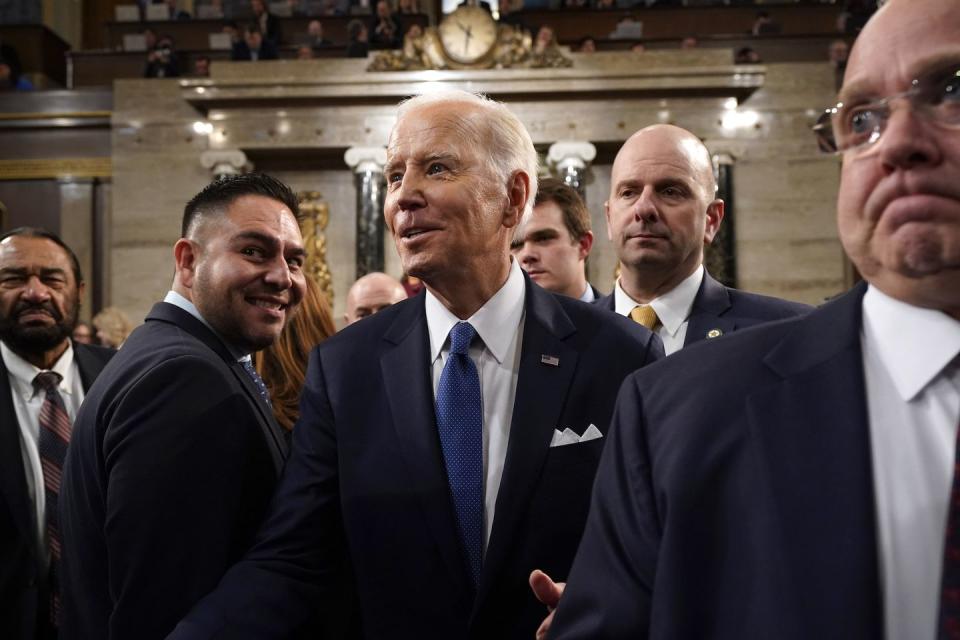Biden's State of the Union—and His Economic Policy—Have Echoed the Only Good Things Trump Said in 2016

- Oops!Something went wrong.Please try again later.
- Oops!Something went wrong.Please try again later.
Nobody put it better than Ralph Steadman when he told The Guardian that "Trump is a lout. He's a godawful disgrace to humanity." Those of us who sounded the alarm about the threat he posed to the constitutional order of this country were long ago vindicated. And yet it would behoove his harshest critics to admit that, while he was a bog-standard Republican in office—his main policy achievement was a ridiculous tax bill that was a giveaway to corporations and the rich—the way he talked about economic policy, particularly during the 2016 campaign, landed squarely with the American public. Certainly, based on his State of the Union address Tuesday night, President Joe Biden was listening back then.
Re-shoring manufacturing jobs and supply chains, Buy American, rebuilding our infrastructure, fighting Big Pharma and lowering drug prices, countering China as a primary geopolitical priority. Even Biden's riff on junk fees, like those from Ticketmaster or preposterous "resort" fees at hotels, hit on frustration among ordinary Americans "tired of being played for suckers" by a system of powerful interests, in the face of which they feel helpless. Biden spoke directly to those people, too. You can say Democrats talked about this stuff before Trump, but it was never so central to their appeals as Biden made it on Tuesday evening. He also went farther than his predecessor in terms of genuine populism, just as he has in policy. He added in some full-throated support for the local union labor who will rebuild the aforementioned infrastructure, as well as the PRO Act that would shore up Americans' right to organize their workplaces. He added some frontal assaults on monopoly power after a period where it's come into full view that corporate concentration has made our supply chains more brittle and worsened inflation.

Back in the 2020 Democratic primaries, you'd have been hard pressed to find someone who would have pointed to Joe Biden as the candidate who would lead us out of the house that Reagan built. Since the '80s, the United States has lived in Ronald Reagan's world, where corporations are our aristocrats and the rules have been made with them in mind: tax cuts, relentless deregulation, offshoring jobs to cut labor costs, and above all, Milton Friedman's rewriting of the rules of corporate governance to make share price the only metric by which a company and its executives are judged.
For decades, Biden the senator was an accessory to that. But last night, he floated a new tax on stock buybacks, a process where firms use their profits to take stock off the market and hike up the share price rather than invest those proceeds in research and development or wages for their workers. It was a move to strike at the symbolic heart of this larger short-termist philosophy of corporate governance. Biden has married the antitrust and anti-corporatist instincts of an Elizabeth Warren with anti-elitist affect, and yes, the aesthetics of how these ideas are presented does matter. It probably helps that he's an old white guy to whom many labels don't seem to stick.
In the end, Trump was exposed as an aestheticist above all: he talked a big game, but when it came down to it, he turned over economic governance to the same Reaganist Paul Ryans who'd been running Republican policymaking for decades. He understood that it was the performance of conflict, of fighting The Enemies, that mattered—that, as historian Mike Duncan said of ancient Roman nobles, "all they had to do was promise the masses a piece of the pie, and they themselves could have the whole world.” Biden has taken some of Trump's top talk and made it real policy. Some people who know China competition policy will tell you his actions there have more teeth than Trump's. It's possible to admit that Trump said some useful things, and channeled some real frustrations with contemporary American life, without denying that he is a godawful disgrace to humanity.
You Might Also Like

